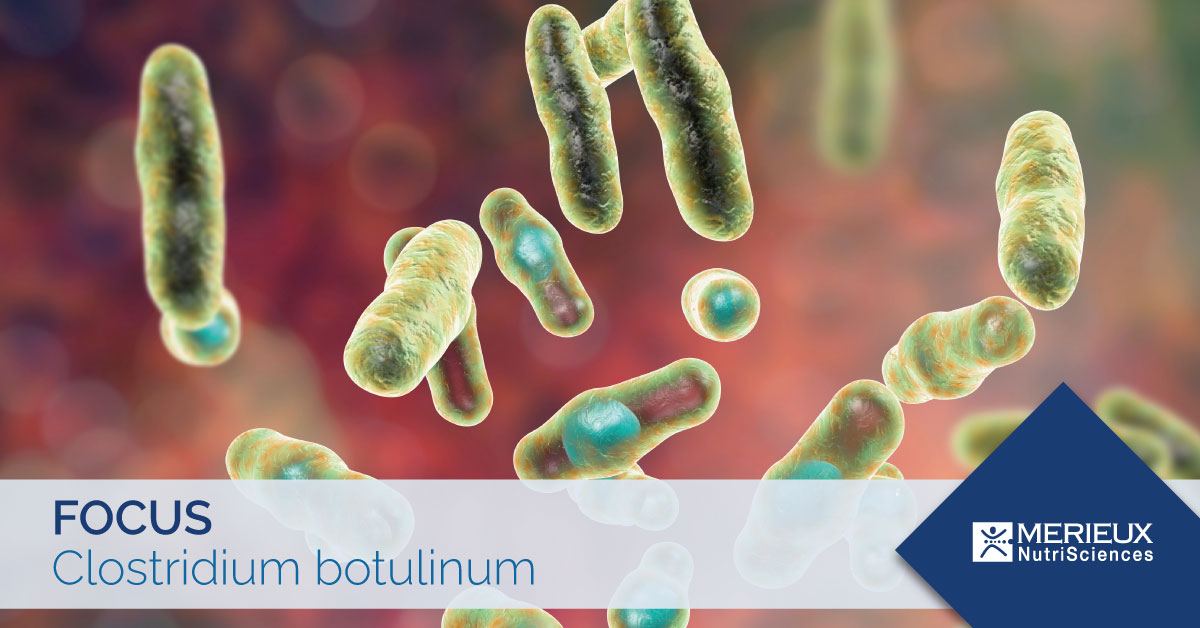CLOSTRIDIUM BOTULINUM : AN INCREASING FOOD SAFETY ISSUE

Food botulism is a neuro-paralytic disease caused by botulinum toxins produced by Gram-positive bacteria belonging to the genus Clostridium. The main symptoms of the disease are clouding and diplopy, bilateral midriasis, ptosis, dysarthria, difficulty swallowing, xerostomy, constipation, respiratory failure and flaccid paralysis.
Clostridia are ubiquitous and spore-forming microorganisms found in soil, in marine sediments, in atmosphere and food. They develop in the presence of particular chemical-physical-biological conditions such as the absence of oxygen, the presence of substrates characterized by a pH >4.6, a water activity (aw) > 0.935 and a high protein content.
One of the main clostridia responsible for food botulism is Clostridium botulinum which develops in food when its spores find the favorable conditions for germination and subsequent vegetative development.
The foods most vulnerable to contamination are preserves, non-acidic semi-preserves, preserves in brine, creams and sauces not adequately acidified, spices in oil and fish and meat preparations.
To prevent and control food contamination, it is necessary to destroy any spores that may be present in the raw materials used to produce the food and prevent the growth of the bacterium during the entire food production process. The right storage temperature, industrial sterilization treatments, pasteurization, refrigeration, freezing, the use of additives such as nitrites, nitrates, potassium sorbate, ascorbic acid, sodium lactate, nisin etc., the exact concentration of sugar and sodium chloride, are just some of the risk management strategies that can be evaluated on the basis of the chemical-physical characteristics of the considered food.
Europe is characterized by a high incidence rate of food botulism and, to date, Italy is the first origin country of food contaminated by Clostridium botulinum worldwide (data source: Safety Hud). In the year 2020 there was a sharp increase in food alerts related to food contamination by this pathogen; this indicates that is needed more attention to the problem, a better prevention, control and management of this risk in order to protect the success of company productivity and the well-being of public health.

